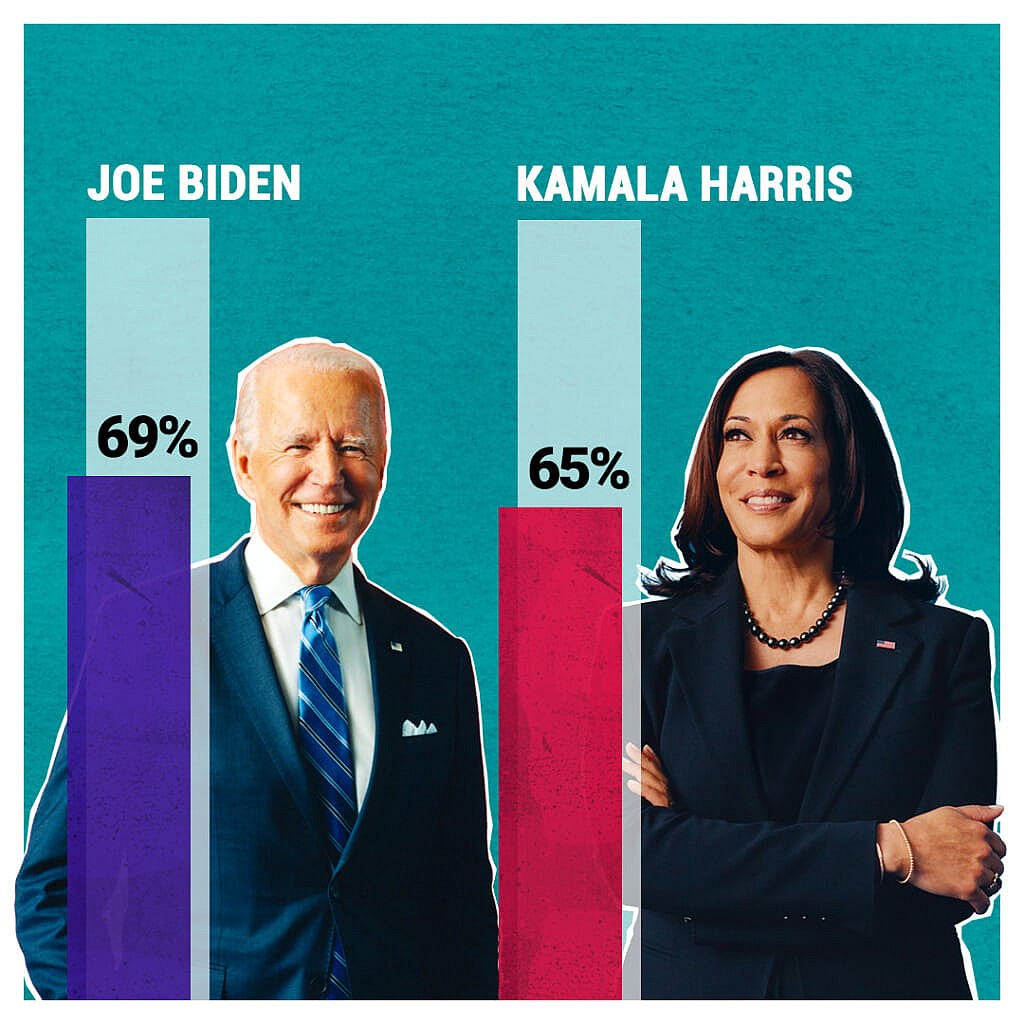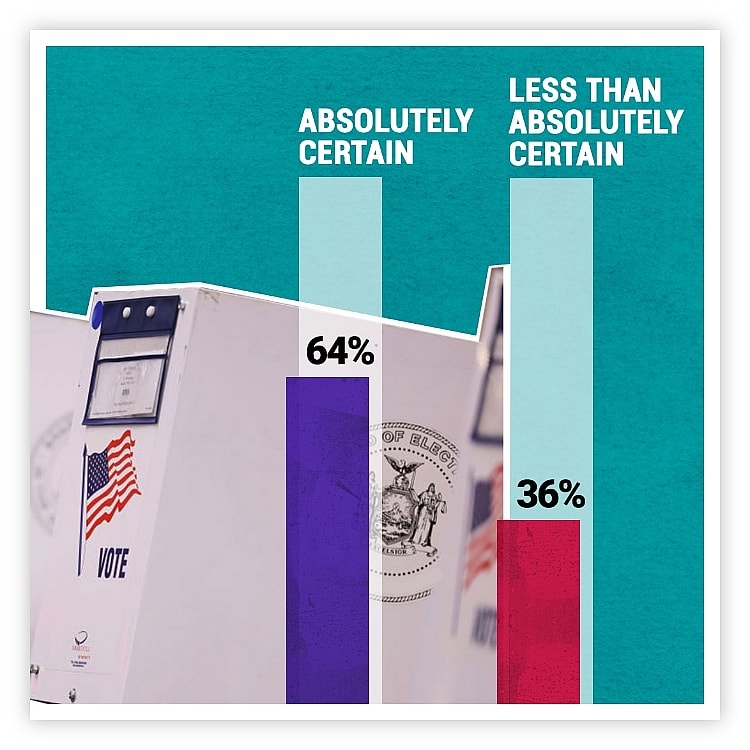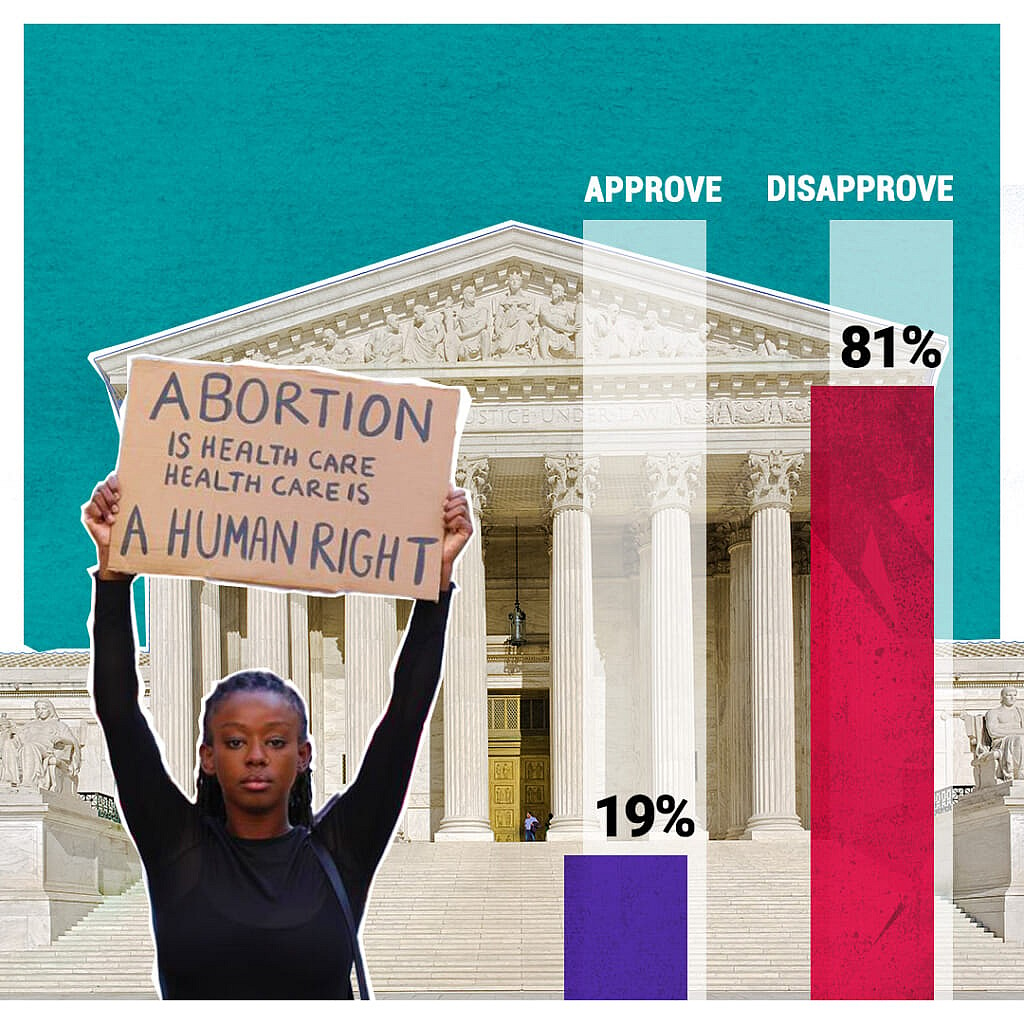The 2022 midterm election is poised to be a pivotal moment in contemporary politics. Every seat in the House of Representatives and 35 seats in the U.S. Senate will be voted upon, as will key down-ballot races. Thirty-six states will elect a governor and other positions that control state legislatures, like secretary of state and attorney general. Midterm election victors will undoubtedly shape the future of controversial issues like reproductive rights and affordable health care.
Black voters are a linchpin of the midterms – and they know it. Data from the recent Survey of Black Voters, a joint effort of theGrio and KFF, shows that Black voters understand how important they are as a voting bloc and the power they wield for Democrats. Eighty-three percent of Black voters said they were “absolutely essential” or “very important” for the Democratic Party to win elections. And, they’re not wrong.
In the 2020 presidential election, Black voters showed their collective strength in battleground states. In states like Georgia, Michigan and Pennsylvania, the majority of Black residents live in metro hubs (Atlanta, Detroit, and Philadelphia in these particular states). But, suburban Black voters who live in areas surrounding metro cities are just as vital. Take Atlanta, for instance.
The Black and white populations of Fulton County, where Atlanta is located, were the same, according to 2020 census estimates — 44% each. (Today, Fulton County is 41% Black and 38% white.) Cobb, Gwinnett and Clayton counties, which border or closely surround Fulton County, have all seen their Black populations increase and white populations decrease over the past decade. In 2020, Georgia went blue for the first time in 28 years.
“While some political pundits and journalists attributed Georgia going Democrat to white suburbs, Black voters were the real key,” said an analysis of the 2020 election by the Brookings Institution.
Even though Black voters have a clear preference for the Democratic Party, relatively few (22%) said that Democrats represent their interests very well. Age is a key determinant in Black voters’ outlooks and perceptions going into the midterm election. Voters ages 18-49 and over 50 had different views on how they felt about President Joe Biden and Vice President Kamala Harris’s performance in office and if they should serve again.
Sixty-nine percent of Black voters overall approve of how Joe Biden handles his job as president. But, there’s a 23 percentage point gap (59% vs. 82%) in how 18-49-year-olds and those over 50 feel about Biden.
Overall, do you approve or disapprove of the way Joe Biden is handling his job as president and the way Kamala Harris is handling her job as vice president?

Among Black voters who identify or lean Democrat, there is a near-even split on whether Biden should run again, with 49% saying the Democratic Party should renominate Biden in 2024 and 50% saying they should nominate someone else. Here again, there is an age divide. Six in ten Black Democrats and leaners under age 50 say they want someone else in 2024, while 57% of those ages 50 and over say they do want Biden to run in 2024.
Data suggests that young voters are not only more disillusioned with the Democratic establishment than their older counterparts, but also with the electoral process itself. Voters ages 18-49 were about three times as likely as voters over 50 to say they weren’t “too confident” or weren’t “at all confident” that their vote would be counted accurately (22% vs. 8%).
Older voters were 21 percentage points more likely than younger voters to say they “always” vote in midterms (53% vs. 32%) and 25 percentage points more likely to say they were “absolutely certain” to vote in November (78% vs. 53%). When asked about their voting habits in a midterm election, nearly 70% of 18-49-year-olds said it’s something they “nearly always, usually, or just sometimes” do.
Widespread unfavorable views of Biden among Black voters may temper their turnout. According to the survey, 70% of those who approve of Biden’s performance are “absolutely certain” they’ll vote, compared to 51% among those who disapprove of Biden. There’s a similar pattern in those who said they were “more motivated” to vote in this election than in previous elections, 58% among those who approve of Biden versus 37% among those who disapprove of him.
A lot of people are unable to get out and vote for many reasons. How about you, how likely are you to vote in the upcoming November election for U.S. House and some U.S. Senate and governor seats?

Younger voters’ motivations to show up at the polls may also be tamped by current social and economic issues that are more likely to affect them, or affect them more directly, like a difficult housing market and student debt.
Seventy-three percent of Black voters said economic concerns are their biggest worry when asked to describe it in their own words. (Despite how COVID-19 ravaged Black communities, only 9% of Black voters said health concerns or the pandemic —not related to cost of affordability—were the biggest issues facing their families.) About one-third of Black voters mentioned the cost of living, especially food and gas, and inflation specifically.
In a few words, what is the biggest concern facing you and your family right now?

Inflation overall was 8.2% from January through September 2022, according to a recent report from The New York Times. Even if food and fuel are omitted (to get a better sense of trajectory), prices rose 6.6% through September, the quickest pace since 1982. The persistence of this inflation bubble. Rates have remained above 5% for the past year now; the Fed strives for 2% annual inflation on average, said The Times.
Inflation has had especially devastating effects on the housing market. According to the survey, housing is a top economic concern for Black voters. About three in 10 said it is the economic issue they most want the President and Congress to address, including higher shares of women, voters under 50 and those with lower incomes. Home prices have climbed 40% during the two years of the pandemic, when homebuyers snapped up homes in short supply backed by near-zero interest rates, according to Reuters.
However, homeownership for Black Americans has stalled and become even more challenging due to low inventory and soaring home prices, Jessica Lautz, National Association of Realtors (NAR) vice president of demographics and behavioral insights, told CNN in February. Black homeownership today remains lower than it was a decade ago, at 43.4%, behind white (72.1%), Latino (50%) and Asian (61.7%) homeownership rates, according to a NAR report.
“Today, homeownership is the principal source of wealth creation for most American households,” said Marcia L. Fudge, Secretary of the Department of Housing and Urban Development, in a statement to CNN. Black voters, rightfully so, are concerned that higher home prices, rising interest rates and a worsening racial gap in homeownership will close the door on their opportunity to own a home.
The U.S. Supreme Court’s recent Dobbs ruling, which overturned Roe v. Wade, and the high court itself have been hot-button issues causing division along gender, income and religious fault lines. Among Black voters, the survey shows attitudes toward the Court and its recent decisions that differ along educational lines. Eighty-one percent of Black voters who are college graduates believe justices make decisions based on politics and ideology compared to 66% of Black voters without a college degree.
Do you (approve) or (disapprove) of the Supreme Court overturning Roe v. Wade?

When it comes to the overturning of Roe v. Wade specifically, eight in 10 Black voters disapprove of the Court’s decision and a similar share see it as a bad thing for Black women. Three in ten Black voters believe that the overturning of Roe v. Wade will have a disproportionate impact on Black women compared to white women.
Black voters are not a monolith. Their views on key issues often split along demographic lines. But, a large majority of Black voters—regardless of age, gender, income or education — agreed on racism’s pervasiveness in politics. More than 60% of Black voters say it’s a bad time to be a Black man, woman or child in America. Political and economic systems are stacked against them, said 8 in 10 Black voters. Moreover, Black voters say that the political parties themselves have a problem with racism. About 3 in 4 Black voters said racism is a major problem in the Republican party, while 3 in 10 said the same of the Democratic Party.
Black voters resoundingly want change, though what that change looks like varies with who you ask. But, one fact is irrefutable: Black voters wield collective power at the polls. And, the Democratic Party, who may have a more tenuous grip on what was once a solid base of support, better be paying attention to what they want if they want to be successful in November.
About the Survey
The Survey of Black Voters is the first partnership survey between theGrio and KFF, a nonprofit organization focused on research and analysis of health and other national issues. Teams from KFF and theGrio worked together to develop the questionnaire and analyze the data, and both organizations contributed financing for the survey. Each organization is solely responsible for its content.
The survey was conducted Aug. 24–Sept. 5 with a nationally representative, probability-based sample of 1,000 adults who identify as Black or African American and are registered to vote. The sample includes all voters who identify as Black or African American, including those who also identify as Hispanic or multi-racial. The sampling design includes Black registered voters reached online through the SSRS Opinion Panel and the Ipsos KnowledgePanel; to reach Black voters who do not use the internet, additional interviews were conducted by calling back respondents who previously participated in an SSRS Omnibus poll and identified as Black and said they did not use the internet. The combined telephone and panel samples were weighted to match the sample’s demographics to the national U.S. population of Black voters using data from the Census Bureau’s 2020 Current Population Survey (CPS) Voting and Registration supplement. Sampling, data collection, weighting and tabulation were managed by SSRS of Glen Mills, Pennsylvania in close collaboration with KFF researchers.
The results have a margin of sampling error of plus or minus 4 percentage points for results based on the full sample of Black voters. The full methodology and question-wording are available here.

Dana Amihere is a data journalist, designer and developer. She is the founder/executive director of AfroLA, a new nonprofit newsroom that covers greater Los Angeles through the lens of the Black community.
TheGrio is FREE on your TV via Apple TV, Amazon Fire, Roku and Android TV. Also, please download theGrio mobile apps today!

